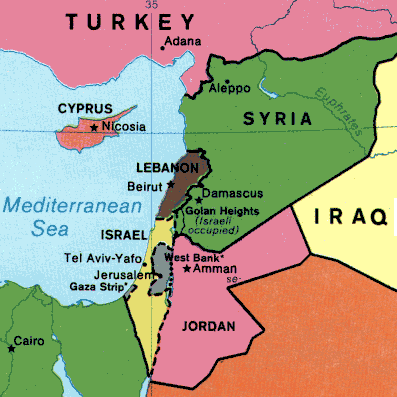
Jack Straw’s article, “We should never have let Cyprus join the EU” in POLITICO EU (September 7, 2023), presents an inaccurate narrative riddled with omissions.
Straw singles out Cyprus for past economic dealings with Russia, while ignoring similar activities involving Russia, the United Kingdom, and Turkey. Substantial Russian capital has flowed through London, and many Russians have gained British passports and residency in the UK. Corruption and money laundering are pervasive in Turkey, which openly welcomes Russian oligarchs for tourism, business, and investment opportunities.
Noticeably absent from Straw’s discussion are Turkey’s troubling human rights record, its support for various terrorist groups, duplicity in the war in Ukraine, and its acquisition of S-400 missiles from Russia. Equally conspicuous is his silence regarding Turkey’s aggressive behavior toward neighboring countries, including Greece, a steadfast NATO ally and America’s Kurdish friends in Syria.
The Greek Junta aimed to eliminate Cypriot President Makarios and negotiate based on Acheson’s plans (1960s) rather than unite Cyprus with Greece, as Straw asserted. The plans involved partition and double enosis to reconcile the two allies and integrate Cyprus into NATO. Makarios opposed them because of concerns about the Turkish presence in the north, potentially leading to a complete Turkish takeover of the island.
Straw’s explanation for Turkey’s Cyprus invasion omits crucial details and calls for a closer look. The invasion was driven by clear goals: territorial expansion, military dominance over Cyprus, and asserting power in the Eastern Mediterranean.
The Turkish Cypriots were not in danger during the coup. Documents from the British National Archives cited by former British diplomat William Mallinson (2010), confirm this, stating the British also saw no threat to Turkish Cypriots and believed Turkey had no valid reason for military intervention. The coup targeted Makarios, and the plotters did not engage Turkish Cypriots in combat.
The August 14 Turkish attack, following the coup’s failure and the island’s return to constitutional order, undermines Turkey’s claim that it invaded Cyprus to restore legitimacy. The unilateral declaration of independence by the ‘Turkish Republic of Northern Cyprus’ in 1983 also proves that Turkey’s invasion did not aim to restore Cyprus’ status quo.
The looming specter of partition played a pivotal role in driving the Greek Cypriots to seek support from Russia, a stance that Straw now condemns without scruple.
Contrary to Straw’s view, partitions can have profound consequences. British partitioning policies in India, Palestine, and Ireland led to significant conflicts and unresolved tensions.
In stark contrast to Straw’s assertions, Turkey’s refusal to comply with UN Security Council resolutions and Western nations’ reluctance to enforce them is primarily responsible for the conflict’s impasse.
Cognizant of their perceived invincibility, stemming from minimal Western opposition and significant military might, the Turks showed little willingness to compromise. They sought to control the north and sway the south through a loose confederation, turning the island into a Turkish protectorate. They stood firm on keeping their troops in Cyprus and their guarantor role.
Jack Straw’s assertions that Cyprus is obstructing a settlement contradict the views held by many diplomats within the British Foreign Office, an institution he once led, and even by a British prime minister. Instead of corroborating Straw’s claims, quotations from the Foreign and Commonwealth Office (FCO), disclosed by Mallinson, explicitly identify Turkey as the responsible party for the impasse.
Straw’s mention of the 2004 plan refers to the Annan V Plan, which underwent changes to align with Turkey’s goals but failed to address Greek Cypriot security concerns, favoring Turkey. One of the plan’s authors, Sir David Hanney, later admitted it was “unwisely generous” to the Turkish side.
Although Greek Cypriots are the island’s majority, their vulnerable status in the wider region underscores their need for protection. The Turkish invasion, occupation, and colonization of Northern Cyprus have made this imperative. Any viable solution must prioritize Greek Cypriot safety, founded on principles of justice, the rule of law, and democracy, mirroring the Western world’s stance in the Ukraine conflict.
Embracing Straw’s suggestion to partition Cyprus if negotiations fail again would be an affront to the principles for which the West is currently fighting and sacrificing in the war in Ukraine. It would counter the West’s commitment to defending democracy and international law, casting doubt on the credibility of its dedication to a rules-based international order. It would convey that aggressive actions can yield favorable outcomes, potentially encouraging more aggression. Furthermore, such a move would strain the relationships with genuine Western allies in the eastern Mediterranean, specifically Greece, and Cyprus, who staunchly support Western efforts in Ukraine and many other parts of the world.






